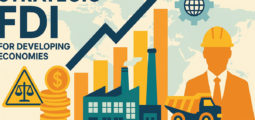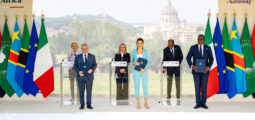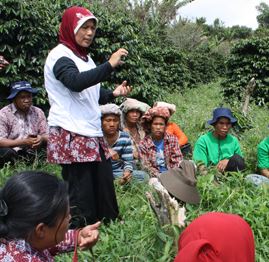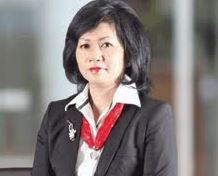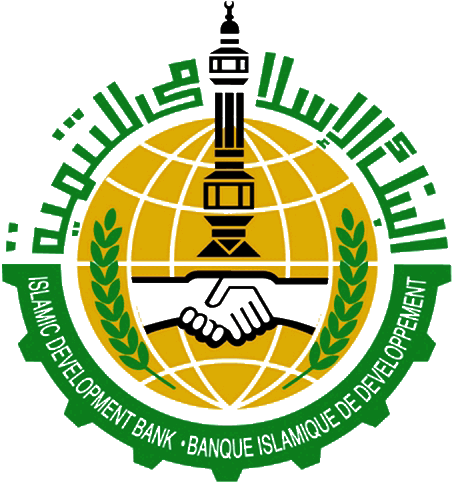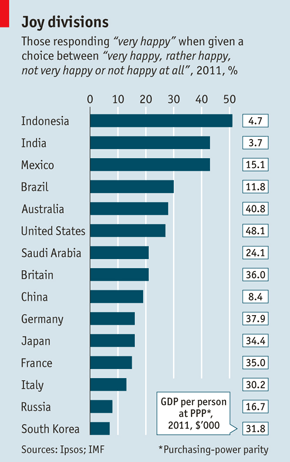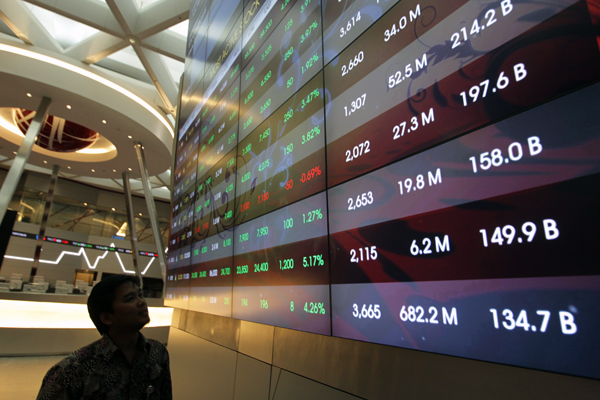[vc_row][vc_column width=”1/2″][vc_column_text]
Indonesia
Indonesia was the 16th largest economy by nominal GDP in 2018 and the largest in South-East Asia. It is the fourth most populous country in the world. GDP per capita is $3,894 USD. Indonesia is a member of the G20 and is a founding member of ASEAN. Indonesia is rich in natural resources and has a strong domestic economy. Services accounted for 43 percent of GDP in 2018, followed by manufacturing (19.9 percent), and Agriculture (12.8 percent). The largest export sectors in 2017 were Agriculture (25 percent), minerals (20 percent), services (12 percent), textiles (11 percent), and chemicals (9 percent). The largest export products were palm oil (8.9 percent), coal (8.89 percent), travel and tourism (6 percent), petroleum gasses (4.1 percent), and ICT services (3.9 percent). Its largest export partners are China (13.8 percent), the USA (10.8 percent), Japan (9.98 percent), India (8.11 percent), and Singapore (6.8 percent). The largest import goods are oil (14.7 percent), industrial machinery (13.96 percent), electric machinery and equipment (11.9 percent), and iron and steel (5 percent). Indonesia began to transform under the Suharto government in the late 1960s with growth rates over 8 percent and a rapid reduction in poverty. Suharto ended the international isolation of the Sukarno era, which led to large inflows of international aid and investment. He also embarked on a policy of import substitution. Indonesia also began to benefit from an increasing oil price, particularly after the oil shocks in the 1970s. When the oil price began to fall in 1981, Indonesia was left exposed with high levels of debt and an uncompetitive economy. In response, Suharto Administration introduced a comprehensive national diversification program and deregulated the economy. Growth recovered but the 1997-1998 Asian crisis hit the country hard; GDP decreased by almost 14 % in 1998. It also exposed the structural problems and the level of corruption under Suharto. With IMF help, growth recovered in the 2000s and was maintained through the global financial crisis due in part to the resource boom and strong domestic demand. After the resource boom cooled in 2012, the government has turned to infrastructure spending to spur development. Indonesia has also benefitted from the establishment of the ASEAN economic community in 2015.
[/vc_column_text][vc_column_text] Its population in 2018 was 266,794,980 [1]
Its population in 2018 was 266,794,980 [1]
 In 2015, 36.88% of its total energy
In 2015, 36.88% of its total energy
consumption was renewable [2]
 In 2021, its GDP grew by 3.69% [2]
In 2021, its GDP grew by 3.69% [2]
 In 2021 it had a positive Current
In 2021 it had a positive Current
Account Balance of US$bn 3.33 [3]
 Its unemployment rate in 2021 was 6.49% [3]
Its unemployment rate in 2021 was 6.49% [3]
 Its Expenditure on R&D (as a percentage of
Its Expenditure on R&D (as a percentage of
GDP) in 2020 was 0.28% [2]
 A Big Mac will set you back the
A Big Mac will set you back the
local equivalent of US$2.34 [4]
What free trade areas or economic unions is it a member of?
Member of the Association of Southeast Asian Nations (ASEAN) since 08/08/1967
Other members:
Brunei Darussalam, Cambodia, Lao People's Dem. Rep., Malaysia, Myanmar, Philippines, Singapore, Thailand, Vietnam
What trade deals are there between Association of Southeast Asian Nations and other countries and economic unions?
ASEAN - Japan Comprehensive Economic Partnership (from 01/12/2008)
ASEAN - Australia - New Zealand Free Trade Area (from 01/01/2010)
ASEAN - China Free Trade Area (from 01/01/2010)
ASEAN - India Free Trade Area (from 01/01/2010)
ASEAN - Korea Free Trade Area (from 01/01/2010)
Free Trade Agreement between Hong Kong, China and the Association of Southeast Asian Nations (from 11/06/2019)
[/vc_column_text][vc_column_text]What trade deals are there with other countries and economic unions?
Japan - Indonesia free trade agreement (from 01/07/2008)
Indonesia - Pakistan partial scope agreement (from 01/09/2013)
Indonesia - Australia Comprehensive Economic Partnership Agreement (from 05/07/2020)
EFTA - Indonesia free trade agreement (from 01/11/2021)
[/vc_column_text][/vc_column][vc_column width=”1/2″][vc_column_text]IFC, ECOM Training Helps Women Farmers Boost Income, Productivity
DEG: Germany Eyes Future Markets Beyond the BRICS
Karen Agustiawan – Confirmed for Second Term at Pertamina
IDB Approves US$ 617 Million in Development Funding
Air Travel Growth Continues to be Driven by BRICS Members and South East Asia
Indonesia To Top “Happy Index”
Erajaya Raises $100 Million From Indonesian IPO
BRIC Economies
Trade with the United Kingdom
Source: UK Office for National Statistics, October 2022.
Contains public sector information licensed under the Open Government Licence v3.0.
Loading, Please Wait!
This may take a second or two.












